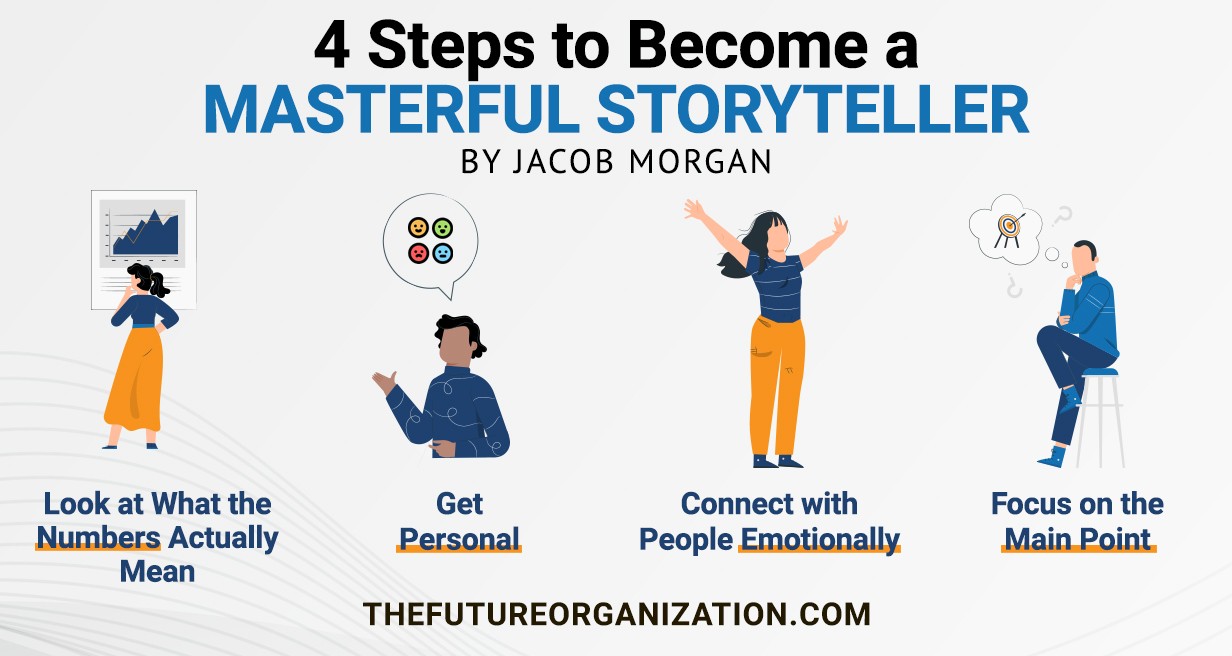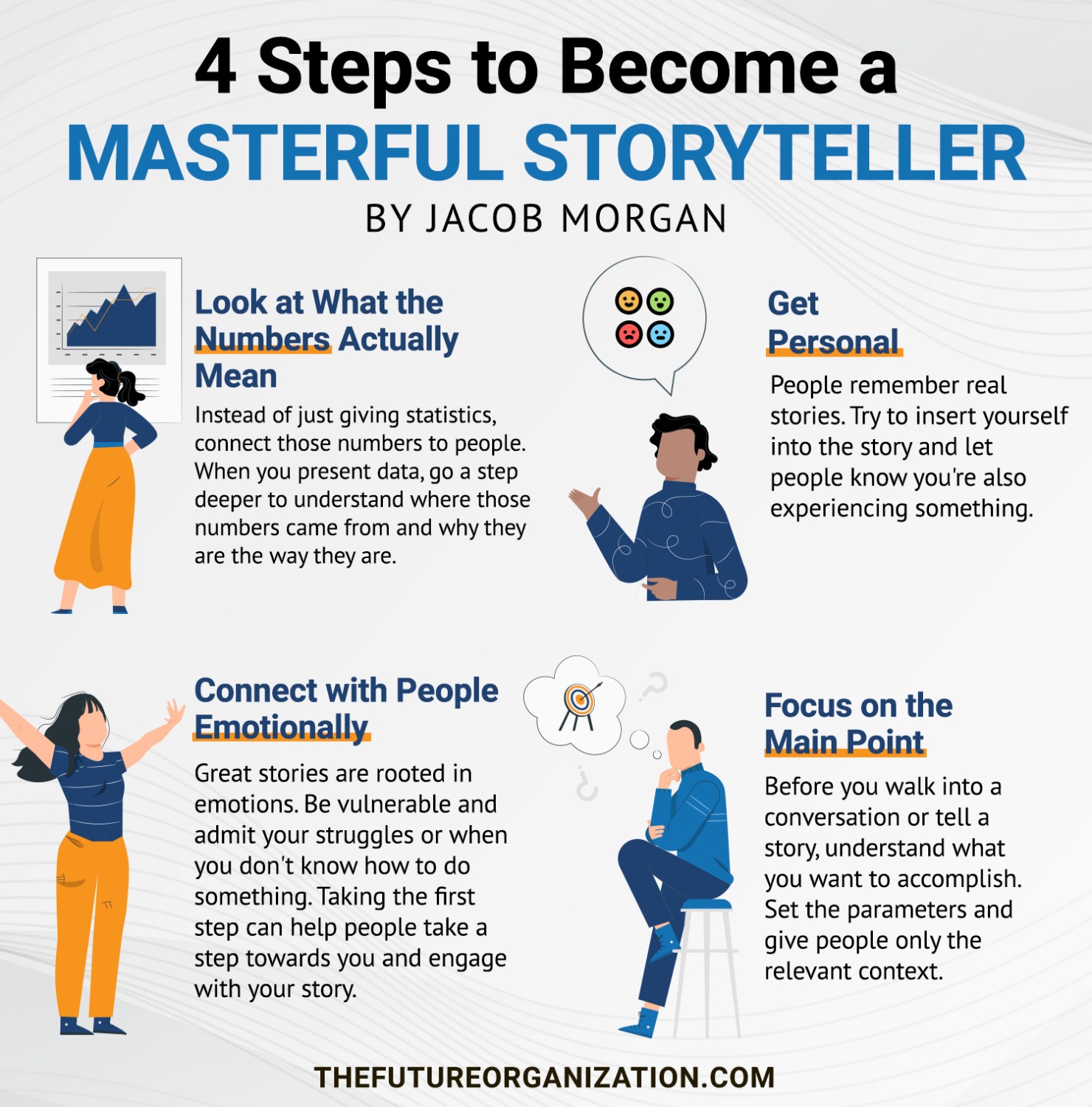Steve Scott
Open this article on LinkedIn to see what people are saying about this topic. Open on LinkedIn 4 Steps to Become a Masterful Storyteller

This is part of LinkedIn's new Newsletter Series. To get weekly exclusive CEO interviews, and insights on leadership, the future of work, and employee experience hit the "subscribe" button here.
No matter if you're giving speeches to thousands of people or pitching an idea to a small team, being a good communicator is a crucial skill for the future of work. And one thing all great storytellers have in common is that they are masterful storytellers.
Stories have a way to connect with people more than statistics or bullet points. People are much more likely to remember a story that made them feel an emotional connection than they are to remember even the most startling statistic.
Here are four ways to become a great storyteller.
- Look at what the numbers actually mean. Look beyond just the numbers themselves to where they came from and what they mean. Everyone can look at numbers and come to a different conclusion, but telling the stories behind the numbers keeps everyone on the same page and shows their impact. Numbers are typically rooted in people, so tie the statistics to emotions and people instead of just numbers.
- Connect with people emotionally. When you can be vulnerable and admit your struggles, you're much more likely to connect with people on a human level. Taking the step with a vulnerable or honest story invites people to share their own stories and build real connections. People don't want to hear about how amazing you are—they want to hear real, honest stories that make you relatable.
- Get personal. People remember real stories much more than hypothetical or fictional stories. The best stories you can tell are your own because you've lived them. No one can tell your story as effectively as you. If you're not comfortable sharing your own stories, start small with lighter anecdotes until you can work up to a longer personal story to get your point across.
- Focus on the main point. You may have a great story to tell, but it loses all of its power if you ramble and add too many details. Think of the main point of the story and what you are trying to get across. When you focus on the goal of telling the story, you can leave out all the fluff and extra details that distract from the main point.
Becoming a masterful storyteller takes practice, but by being willing to open up and share your experiences, you can build strong connections and become a great communicator, no matter the stage.
---------------------------
Now more than ever we need to take a step back to define what it means to be a leader and what great leadership looks like. But this isn't easy to do. In fact, many business leaders struggle with this. You cannot become and build what you don't define. In the PDF you will get a framework you can follow and also see how some of the world's top CEOs define leadership. Click here to get the PDF.
Know someone who might be interested in this newsletter? Share it with them.
Unsubscribe | Help
You are receiving LinkedIn notification emails. The newsletter author can see that you are a subscriber.
This email was intended for Steve Scott (Speaker | Venture/Investor | Independent Director/Interim CEO | Growth - Funding - Scaling Strategist | CEO Advisor). Learn why we included this.
© 2021 LinkedIn Corporation, 1000 West Maude Avenue, Sunnyvale, CA 94085. LinkedIn and the LinkedIn logo are registered trademarks of LinkedIn.

Wednesday, August 25, 2021
Fwd: 4 Steps to Become a Masterful Storyteller
On Aug 25, 2021, at 2:28 PM, Jacob Morgan via LinkedIn <newsletters-noreply@linkedin.com> wrote:
Subscribe to:
Post Comments (Atom)


No comments:
Post a Comment